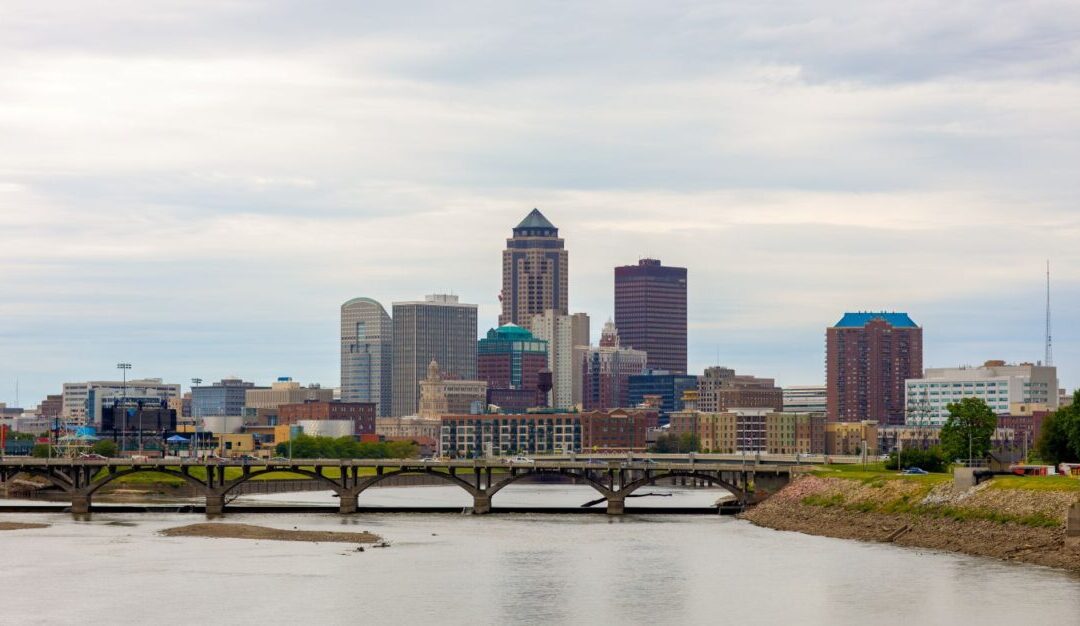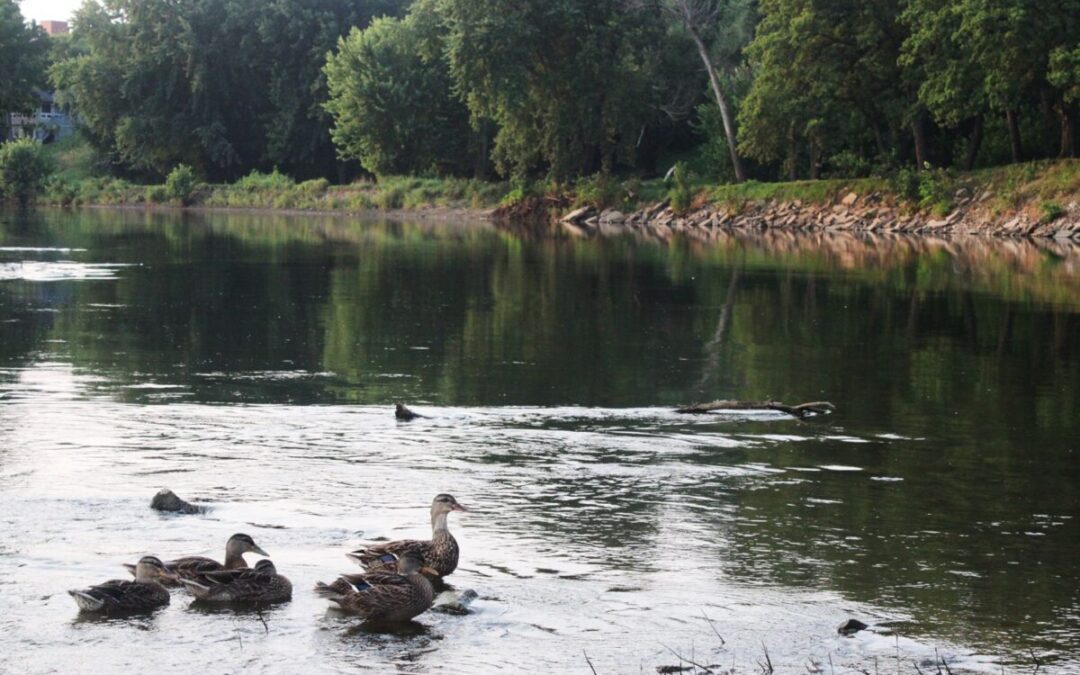
The Des Moines and Racoon rivers, which converge in the Iowa capital, provide drinking water to about 500,000 people, according to Des Moines Water Works. (Adobe Stock)
The Environmental Protection Agency has overturned a 2024 ruling that sought to protect some of Iowa’s largest waterways that provide drinking water for half a million people.
Nitrate levels in many of Iowa’s rivers, lakes, and streams are already above federally accepted standards.
Based on the EPA’s standards, the Iowa Department of Natural Resources added seven of Iowa’s major urban drinking water supplies to a list of impaired waterways for exceeding safe nitrate concentrations.
The EPA has taken those waterways off the list. Food and Water Watch Legal Director Tarah Heinzen said the decision threatens Iowans’ health.
“This does not bode well for clean drinking water at all, both in Iowa and elsewhere,” said Heinzen. “We do not expect pro regulatory action by this Environmental Protection Agency and I think its a really dangerous sign.”
Nitrates routinely seep into Iowa’s ground and surface water from nearby large animal feeding operations.
The Trump administration has loosened regulatory standards on toxins in U.S. waterways, including PFAS, also known as forever chemicals.
The Trump administration has eliminated a host of offices and positions responsible for the oversight of environmental regulations in recent months, including an entire water monitoring division, which Heinzen said will have a direct effect on Iowans’ drinking water.
“EPA has been working on a yearslong process called a nitrate assessment to evaluate whether current drinking water standards are even protective enough of public health,” said Heinzen. “And so, the elimination of that entire science office is almost certainly halting that division’s work on the nitrate assessment that could have led to more stringent drinking water limits.”
Recent research by Polk County, Iowa, where Des Moines is located, shows that at least 80% of nitrate contamination in the state’s waterways is the result of runoff from from large, commercial agriculture operations.
Related: The link between Iowa’s worsening water quality and rising cancer rate

Oppose ICE? Here’s how you can take action
The moment we’re in The US Senate is currently deciding whether to approve new funding for the Department of Homeland Security (DHS), including...

Clean water advocates announce demands for Iowa rivers, streams
By Mark Moran The environmental advocacy group Food & Water Watch has announced a 20-point "clean water blueprint" it says would help...

Iowa environmental researchers push back on clean water claims
By Mark Moran The Iowa Farm Bureau has released a statement claiming that the state's waterways are becoming cleaner, despite evidence that...

Iowa Guard soldier killed in Syria was Meskwaki police chief’s son
Meskwaki police chief says his son was one of the Iowa Guard members killed in Syria. by Robin Opsahl, Iowa Capital Dispatch December 14, 2025 The...

Collaboration and Care Guide Return of Meskwaki Artifacts From UNI to Their Tribal Home
The Meskwaki Nation worked with the University of Northern Iowa to return cultural artifacts to the tribe. The items will now be housed at The...

Iowa’s Dem. Senate candidates talk economic struggles, healthcare at candidate forum
US Senate hopefuls Nathan Sage, Josh Turek, and Zach Wahls each hope to replace Sen. Joni Ernst, who is not running for a third term. Affordability...




